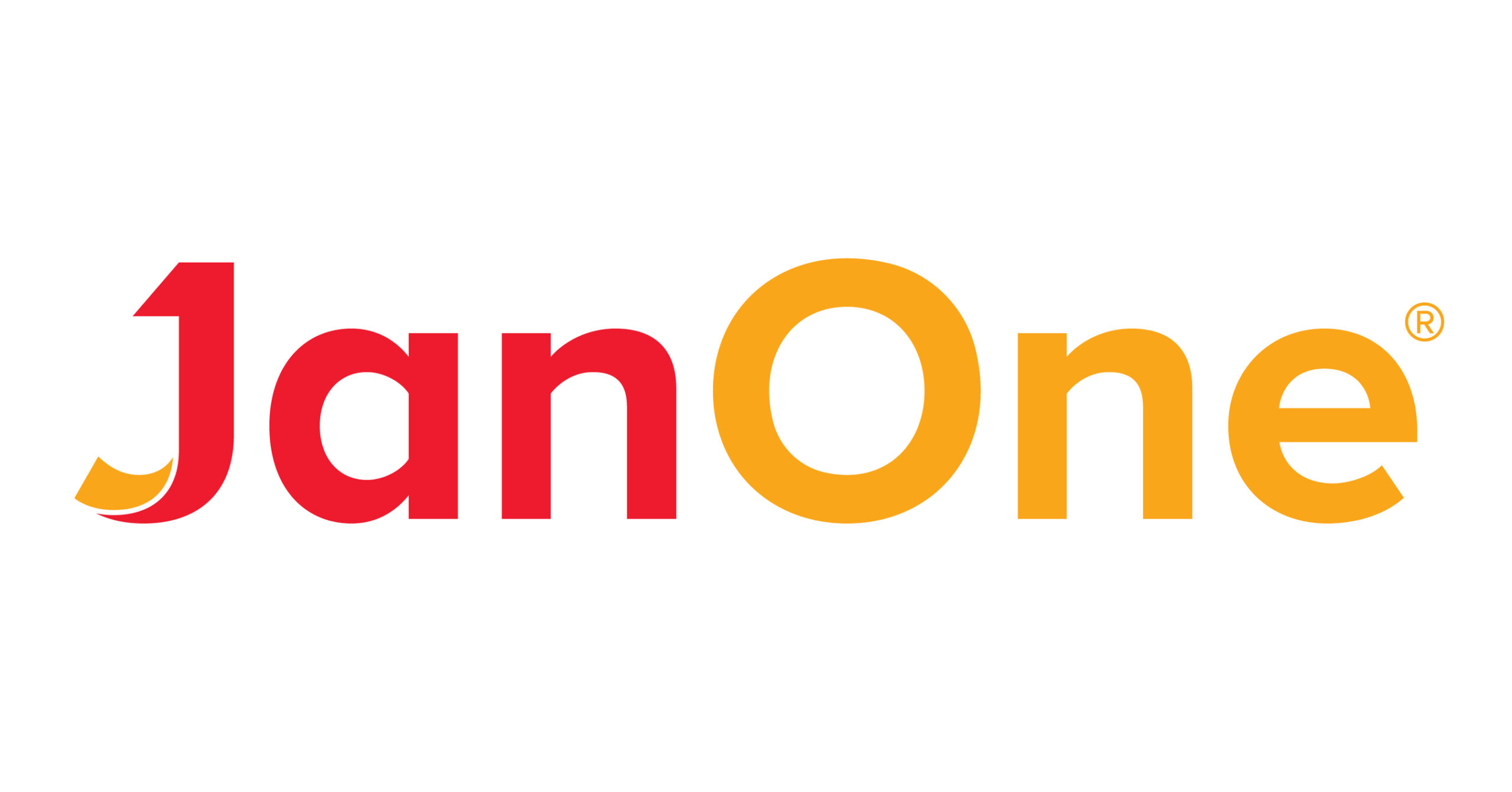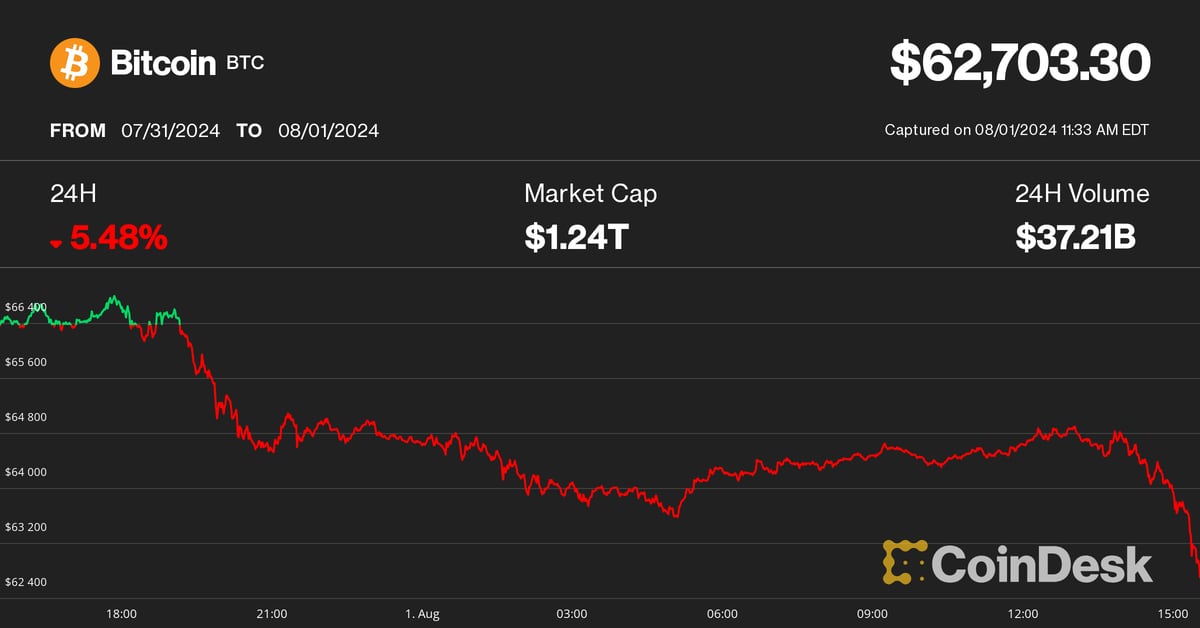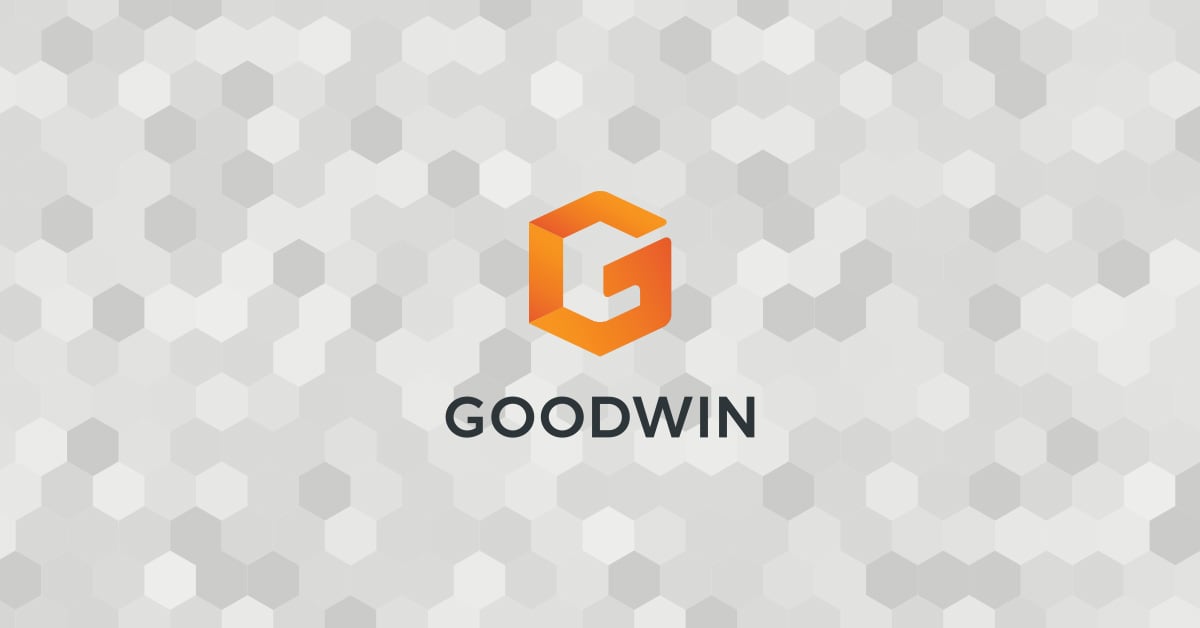Blockchain
JanOne to Acquire ALT 5 Sigma Inc., a Leading Provider of Next-Generation Blockchain Financial Technology

ALT 5 Transactional Processing Volume Exceeded $1.1 Billion in 2023 and Over $450 Million in Q1 2024
LAS VEGAS, May 13, 2024 /PRNewswire/ — JanOne Inc. (Nasdaq: GEN) announced today that it has entered into a definitive agreement to acquire blockchain financial technology provider, ALT 5 Sigma Inc., a Delaware corporation, and each of its wholly owned subsidiaries. The transaction is expected to close the week of May 13, 2024 and is subject to customary closing conditions and applicable regulatory requirements.
Launched in 2018, ALT 5 is a fintech that provides next-generation blockchain-based technologies to enable the migration to a new global financial paradigm. ALT 5, through its subsidiaries, offers two main platforms to its customers: “ALT 5 Pay” and “ALT 5 Prime”.
ALT 5 Pay is a cryptocurrency payment gateway that allows registered and approved global merchants to accept and make cryptocurrency payments or integrate the ALT 5 Pay payment platform into their application or operations using the plugin with WooCommerce and/or the ALT 5 Pay checkout widget and API. Merchants have the option to automatically convert to fiat currency (US Dollars, Canadian Dollars, Euros and British Pounds) or receive payment in digital assets.
ALT 5 Prime is an over-the-counter electronic trading platform that allows registered and approved customers to buy and sell digital assets. Customers can purchase digital assets with fiat, and similarly, they can sell digital assets and receive fiat. ALT 5 Prime is available through a browser-based access, a mobile phone application called “ALT 5 Pro” which can be downloaded from the Apple App Store, Google Play, via the ALT 5 Prime FIX API, as well as via Broadridge Financial Solutions Gateway NYFIX for approved customers.
According to Research and Markets.com (1) “The payment processing solutions market size is estimated to grow from approximately $100 billion in 2023 at a CAGR of 9.5% during the forecast period from 2023 to 2030. ” Furthermore, the report states: “Technological advances, including artificial intelligence, machine learning and blockchain, are revolutionizing the payment processing landscape.” (1) Source https://ca.finance.yahoo.com/news/global-payment-processing-solutions-market-121800862.html
“We believe that ALT 5’s innovative solutions provide significant competitive advantages in this market and together we can help them continue their growth,” said Tony Isaac, President and CEO of JanOne Inc. “The innovative products and services provided by ALT 5 to its global customers are at the forefront of the payment processing industry and have helped reduce risk and eliminate costly credit card chargebacks. Additionally, ALT 5 has developed a profitable business that we can help you quickly expand to globally, we will begin working with the Alt5 team to identify further opportunities to expand our product portfolio and business reach.”
Andre Beauchesne, President of ALT 5 Sigma Inc., said: “Since our inception in 2018, it has been one of our goals to be part of a publicly traded company and the acquisition by JanOne begins a bright new chapter in our growth story.” He added: “As we continue to build on our strong foundation, JanOne’s management team and public listing will help capitalize on many opportunities.”
Transaction overview
At closing, JanOne will issue to former ALT 5 shareholders 1,799,100 shares of common stock, representing approximately 19.9% of JanOne’s outstanding common shares as of May 10, and (ii) 34,207 shares of its Series B non-preferred stock convertible and non-refundable. Upon closing, ALT 5 Sigma Inc. and its subsidiaries will become wholly owned subsidiaries of JanOne.
Further details on the acquisition can be found on JanOne’s website at https://ir.janone.com/sec-filings or in JanOne’s filings with the Securities and Exchange Commission at https://www.sec.gov/edgar/browse/?CIK=862861&owner=exclude.
About JanOne Inc. — JanOne is a unique Nasdaq-listed company offering innovative, actionable solutions intended to help end the opioid crisis. JanOne is committed to funding innovation, technology and education resources to find a key solution to the national opioid epidemic, which is one of the deadliest and most widespread in the nation’s history. Its drugs in clinical trials have shown promise for their innovative approach to the causes of pain as a strategic option for doctors averse to exposing patients to addictive opioids.
Please visit www.janone.com for more information.
Forward-Looking Statements
This press release contains forward-looking statements as defined in the Private Securities Litigation Reform Act of 1995, including, but not limited to, statements regarding statements that JAN 101 will address PAD, JAN 123 will address CRPS, timing of initiation of clinical trials, that the FDA will allow approval through a 505(b)(2) pathway for JAN 123, which upon JAN 101 approval will immediately disrupt the PAD market and other statements, including words such as “continue”, “expect”, “intend”, “will,” “hope,” “should,” “would,” “can,” “potential,” and other similar expressions. Such statements reflect JanOne’s current view with respect to future events, are subject to risks and uncertainties and are necessarily based on a number of estimates and assumptions that, while considered reasonable by JanOne, are inherently subject to significant business, economic, competitive, political and social uncertainties and contingencies. Many factors could cause JanOne’s actual results, performance or achievements to be materially different from any future results, performance or achievements described in this press release. Such factors may include, among others, those detailed in the Company’s periodic reports filed with the Securities and Exchange Commission (the “SEC”). Should one or more of these risks or uncertainties materialize, or should the assumptions set forth in the section entitled “Risk Factors” in JanOne’s SEC filings underlying such forward-looking statements prove incorrect, actual results may vary materially from those described here. These forward-looking statements are made as of the date of this press release and JanOne does not intend, and undertakes no obligation, to update these forward-looking statements, except as required by law. JanOne cannot assure you that such statements will prove to be accurate as actual results and future events could differ materially from those anticipated in such statements. Individuals are cautioned that forward-looking statements are not guarantees of future performance and accordingly investors are cautioned not to place undue reliance on forward-looking statements due to the inherent uncertainty therein.
Media Contact Investor Relations
[email protected]
1-800-400-2247
SOURCE JanOne Inc.
Blockchain
Bitcoin (BTC) Price Crashes as Donald Trump’s Win Odds Dip

Markets received nominally good news on Thursday morning, with the US ISM manufacturing PMI for July falling much more than economists expected, sending interest rates to multi-month lows across the board. Additionally, initial jobless claims in the US jumped to their highest level in about a year. Taken together, the data adds to the sentiment that the US is on the verge of a cycle of monetary easing by the Federal Reserve, which is typically seen as bullish for risk assets, including bitcoin.
Blockchain
Terra Blockchain Reboots After Reentry Attack Leads to $4M Exploit

Please note that our Privacy Policy, terms of use, cookiesAND do not sell my personal information has been updated.
CoinDesk is a awarded press agency that deals with the cryptocurrency sector. Its journalists respect a rigorous set of editorial policiesIn November 2023, CoinDesk has been acquired from the Bullish group, owner of Bullisha regulated digital asset exchange. Bullish Group is majority owned by Block.one; both companies have interests in a variety of blockchain and digital asset businesses and significant digital asset holdings, including bitcoin. CoinDesk operates as an independent subsidiary with an editorial board to protect journalistic independence. CoinDesk employees, including journalists, are eligible to receive options in the Bullish group as part of their compensation.
Blockchain
$6.8M Stolen, ASTRO Collapses 60%

In the latest news in the blockchain industry, there has been a turn of events that has severely affected Terra and its users and investors, with the company losing $6.8 million. The attack, which exploited a reentry vulnerability in the network’s IBC hooks, raises questions about the security measures of the once celebrated blockchain protocol.
A web3 security company, Cyvers Alerts reported that the exploit occurred on July 31st and caused the company to lose 60 million ASTRO, 3.5 million USDC500,000 USDTand 2. 7 BitcoinThe flaw was discovered in April and allows cybercriminals to make payments non-stop by withdrawing money from the network.
Earth’s response
Subsequently, to the hack employed on the Terra blockchain, its official X platform declared the Suspension network operations for a few hours to apply the emergency measure. Finally in its sendTerra’s official account agreed, sharing that its operations are back online: the core transactions that make up the platform are now possible again.
However, the overall value of the various assets lost in the event was unclear.
Market Impact: ASTRO Crashes!
The hack had an immediate impact on the price of ASTRO, which dropped nearly 60% to $0.0206 following the network shutdown. This sharp decline highlights the vulnerability of token prices to security breaches and the resulting market volatility.
This incident is not the first time Terra has faced serious challenges. Earlier this year, the blockchain encountered significant problems that called into question its long-term viability. These repeated incidents underscore the need for stronger security measures to protect users’ assets and maintain trust in the network.
The recent Terra hack serves as a stark reminder of the ongoing security challenges in the blockchain space. As the platform works to regain stability, the broader crypto community will be watching closely.
Read also: Record Cryptocurrency Theft: Over $1 Billion Stolen in 2024
This is a major setback for Terra. How do you think this will impact the blockchain industry?
Blockchain
Luxembourg proposes updates to blockchain laws | Insights and resources

On July 24, 2024, the Ministry of Finance proposed Blockchain Bill IVwhich will provide greater flexibility and legal certainty for issuers using Distributed Ledger Technology (DLT). The bill will update three of Luxembourg’s financial laws, the Law of 6 April 2013 on dematerialised securitiesTHE Law of 5 April 1993 on the financial sector and the Law of 23 December 1998 establishing a financial sector supervisory commissionThis bill includes the additional option of a supervisory agent role and the inclusion of equity securities in dematerialized form.
DLT and Luxembourg
DLT is increasingly used in the financial and fund management sector in Luxembourg, offering numerous benefits and transforming various aspects of the industry.
Here are some examples:
- Digital Bonds: Luxembourg has seen multiple digital bond issuances via DLT. For example, the European Investment Bank has issued bonds that are registered, transferred and stored via DLT processes. These bonds are governed by Luxembourg law and registered on proprietary DLT platforms.
- Fund Administration: DLT can streamline fund administration processes, offering new opportunities and efficiencies for intermediaries, and can do the following:
- Automate capital calls and distributions using smart contracts,
- Simplify audits and ensure reporting accuracy through transparent and immutable transaction records.
- Warranty Management: Luxembourg-based DLT platforms allow clients to swap ownership of baskets of securities between different collateral pools at precise times.
- Tokenization: DLT is used to tokenize various assets, including real estate and luxury goods, by representing them in a tokenized and fractionalized format on the blockchain. This process can improve the liquidity and accessibility of traditionally illiquid assets.
- Tokenization of investment funds: DLT is being explored for the tokenization of investment funds, which can streamline the supply chain, reduce costs, and enable faster transactions. DLT can automate various elements of the supply chain, reducing the need for reconciliations between entities such as custodians, administrators, and investment managers.
- Issuance, settlement and payment platforms:Market participants are developing trusted networks using DLT technology to serve as a single source of shared truth among participants in financial instrument investment ecosystems.
- Legal framework: Luxembourg has adapted its legal framework to accommodate DLT, recognising the validity and enforceability of DLT-based financial instruments. This includes the following:
- Allow the use of DLT for the issuance of dematerialized securities,
- Recognize DLT for the circulation of securities,
- Enabling financial collateral arrangements on DLT financial instruments.
- Regulatory compliance: DLT can improve transparency in fund share ownership and regulatory compliance, providing fund managers with new opportunities for liquidity management and operational efficiency.
- Financial inclusion: By leveraging DLT, Luxembourg aims to promote greater financial inclusion and participation, potentially creating a more diverse and resilient financial system.
- Governance and ethics:The implementation of DLT can promote higher standards of governance and ethics, contributing to a more sustainable and responsible financial sector.
Luxembourg’s approach to DLT in finance and fund management is characterised by a principle of technology neutrality, recognising that innovative processes and technologies can contribute to improving financial services. This is exemplified by its commitment to creating a compatible legal and regulatory framework.
Short story
Luxembourg has already enacted three major blockchain-related laws, often referred to as Blockchain I, II and III.
Blockchain Law I (2019): This law, passed on March 1, 2019, was one of the first in the EU to recognize blockchain as equivalent to traditional transactions. It allowed the use of DLT for account registration, transfer, and materialization of securities.
Blockchain Law II (2021): Enacted on 22 January 2021, this law strengthened the Luxembourg legal framework on dematerialised securities. It recognised the possibility of using secure electronic registration mechanisms to issue such securities and expanded access for all credit institutions and investment firms.
Blockchain Act III (2023): Also known as Bill 8055, this is the most recent law in the blockchain field and was passed on March 14, 2023. This law has integrated the Luxembourg DLT framework in the following way:
- Update of the Act of 5 August 2005 on provisions relating to financial collateral to enable the use of electronic DLT as collateral on financial instruments registered in securities accounts,
- Implementation of EU Regulation 2022/858 on a pilot scheme for DLT-based market infrastructures (DLT Pilot Regulation),
- Redefining the notion of financial instruments in Law of 5 April 1993 on the financial sector and the Law of 30 May 2018 on financial instruments markets to align with the corresponding European regulations, including MiFID.
The Blockchain III Act strengthened the collateral rules for digital assets and aimed to increase legal certainty by allowing securities accounts on DLT to be pledged, while maintaining the efficient system of the 2005 Act on Financial Collateral Arrangements.
With the Blockchain IV bill, Luxembourg will build on the foundations laid by previous Blockchain laws and aims to consolidate Luxembourg’s position as a leading hub for financial innovation in Europe.
Blockchain Bill IV
The key provisions of the Blockchain IV bill include the following:
- Expanded scope: The bill expands the Luxembourg DLT legal framework to include equity securities in addition to debt securities. This expansion will allow the fund industry and transfer agents to use DLT to manage registers of shares and units, as well as to process fund shares.
- New role of the control agent: The bill introduces the role of a control agent as an alternative to the central account custodian for the issuance of dematerialised securities via DLT. This control agent can be an EU investment firm or a credit institution chosen by the issuer. This new role does not replace the current central account custodian, but, like all other roles, it must be notified to the Commission de Surveillance du Secteur Financier (CSSF), which is designated as the competent supervisory authority. The notification must be submitted two months after the control agent starts its activities.
- Responsibilities of the control agent: The control agent will manage the securities issuance account, verify the consistency between the securities issued and those registered on the DLT network, and supervise the chain of custody of the securities at the account holder and investor level.
- Simplified payment processesThe bill allows issuers to meet payment obligations under securities (such as interest, dividends or repayments) as soon as they have paid the relevant amounts to the paying agent, settlement agent or central account custodian.
- Simplified issuance and reconciliationThe bill simplifies the process of issuing, holding and reconciling dematerialized securities through DLT, eliminating the need for a central custodian to have a second level of custody and allowing securities to be credited directly to the accounts of investors or their delegates.
- Smart Contract Integration:The new processes can be executed using smart contracts with the assistance of the control agent, potentially increasing efficiency and reducing intermediation.
These changes are expected to bring several benefits to the Luxembourg financial sector, including:
- Fund Operations: Greater efficiency and reduced costs by leveraging DLT for the issuance and transfer of fund shares.
- Financial transactions: Greater transparency and security.
- Transparency of the regulatory environment: Increased attractiveness and competitiveness of the Luxembourg financial centre through greater legal clarity and flexibility for issuers and investors using DLT.
- Smart Contracts: Potential for automation of contractual terms, reduction of intermediaries and improvement of transaction traceability through smart contracts.
Blockchain Bill IV is part of Luxembourg’s ongoing strategy to develop a strong digital ecosystem as part of its economy and maintain its status as a leading hub for financial innovation. Luxembourg is positioning itself at the forefront of Europe’s growing digital financial landscape by constantly updating its regulatory framework.
Local regulations, such as Luxembourg law, complement European regulations by providing a more specific legal framework, adapted to local specificities. These local laws, together with European initiatives, aim to improve both the use and the security of projects involving new technologies. They help establish clear standards and promote consumer trust, while promoting innovation and ensuring better protection against potential risks associated with these emerging technologies. Check out our latest posts on these topics and, for more information on this law, blockchain technology and the tokenization mechanism, do not hesitate to contact us.
We are available to discuss any project related to digital finance, cryptocurrencies and disruptive technologies.
This informational piece, which may be considered advertising under the ethics rules of some jurisdictions, is provided with the understanding that it does not constitute the rendering of legal or other professional advice by Goodwin or its attorneys. Past results do not guarantee a similar outcome.
-

 Regulation12 months ago
Regulation12 months agoRipple CTO and Cardano founder clash over XRP’s regulatory challenges ⋆ ZyCrypto
-

 Regulation10 months ago
Regulation10 months agoNancy Pelosi Considers Supporting Republican Crypto Bill FIT21 – London Business News
-

 Videos12 months ago
Videos12 months agoCryptocurrency News: Bitcoin, ETH ETF, AI Crypto Rally, AKT, TON & MORE!!
-

 Regulation11 months ago
Regulation11 months agoBitcoin’s future is ‘bleak’ and ripe for regulation, says lead developer
-

 News9 months ago
News9 months agoAave Price Increases Following Whales Accumulation and V3.1 Launch
-

 Regulation9 months ago
Regulation9 months agoSouth Korea Imposes New ‘Monitoring’ Fees on Cryptocurrency Exchanges
-

 Regulation9 months ago
Regulation9 months agoA Blank Sheet for Cryptocurrencies: Kamala Harris’ Regulatory Opportunity
-

 Regulation9 months ago
Regulation9 months agoCryptocurrency Regulations in Slovenia 2024
-

 News11 months ago
News11 months agoThe trader earned $46 million with PEPE after reaching a new ATH
-

 Regulation11 months ago
Regulation11 months agoCrypto needs regulation to thrive: Tyler Cowen
-

 Blockchain11 months ago
Blockchain11 months agoSolana ranks the fastest blockchain in the world, surpassing Ethereum, Polygon ⋆ ZyCrypto
-

 Blockchain11 months ago
Blockchain11 months agoSolana Surpasses Ethereum and Polygon as the Fastest Blockchain ⋆ ZyCrypto





